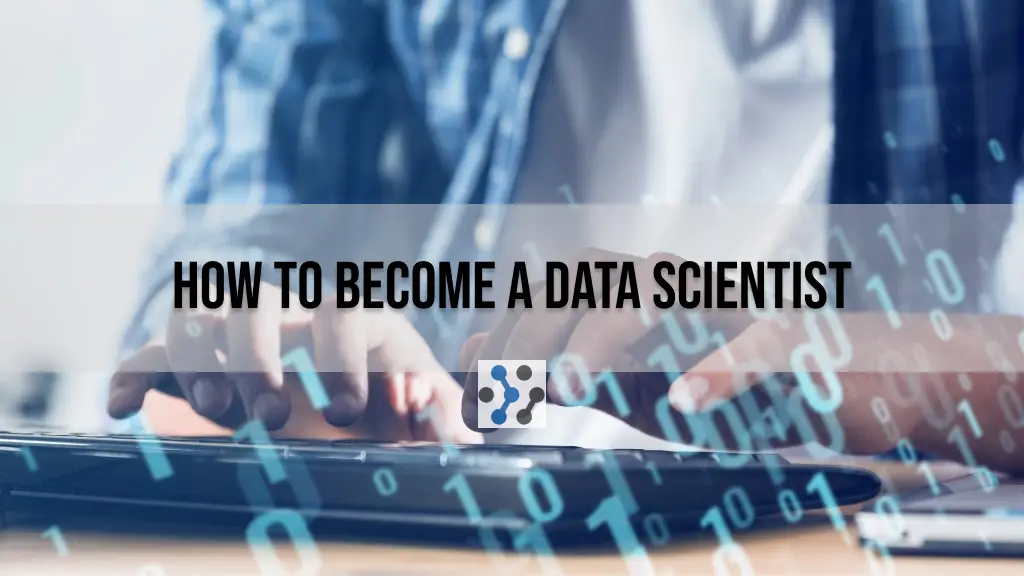Data science is one of the most exciting and high-demand careers today. As organizations increasingly rely on data to drive decisions, the need for data science skills in every industry continues to grow rapidly. If you’re interested in entering this fast-growing field, this comprehensive guide outlines the key steps to launch and advance your data science career.
We’ll cover critical topics including:
- Building the necessary data science skills
- Getting the right education and certifications
- Gaining hands-on experience
- Creating a standout resume and portfolio
- Acing the interview process
- Finding the best job opportunities
- Continuing your professional development
By following this roadmap, you’ll establish a solid data science foundation and be prepared to excel in industry, research, academia, or your own start-up. Let’s get started!
Understanding Data Science

Data science merges multiple disciplines to extract valuable insights from data. It incorporates skills from:
- Mathematics and Statistics – Creating quantitative models, performing statistical analysis
- Computer Science – Designing systems to store, process and analyze large amounts of data
- Domain Expertise – Understanding the wider business context and goals
- Machine Learning – Developing algorithms that learn from data and improve with experience
- Data Visualization – Communicating data insights effectively
Data scientists sit at the intersection of coding, analytics, and business acumen. Key responsibilities include:
- Identifying valuable business questions and how data can answer them
- Collecting, cleaning, and organizing datasets from diverse sources
- Performing exploratory analysis to gain insights
- Applying machine learning modeling and algorithms
- Designing experiments and A/B testing
- Communicating data findings and implications as stories and visuals
This multi-disciplinary role offers great opportunities to derive impactful insights.

Academic Requirements
A strong academic background establishes fundamental knowledge needed to begin a data science career.
Mathematics
Coursework across branches of mathematics like calculus, algorithms, linear algebra and statistics provides the analytical logic and computational ability to approach data tasks. Math is essential for understanding and applying complex machine learning algorithms.
Statistics
Statistical knowledge is crucial for a data scientist to master concepts including probability, distributions, statistical testing, regression, and algorithm accuracy measurements. Classes cover using tools like SAS, SPSS, and R.
Computer Science
Computer science fundamentals including data structures, algorithms, database design and programming languages like Python help build technical proficiency to wrangle and analyze large datasets using code.
Data Analysis
Undergraduate or graduate-level classes specifically focused on data mining, data visualization, and exploratory data analysis directly apply. Coursework teaches gathering, cleaning, modeling, interpreting and graphically communicating data insights.

Skills Required
Data scientists need a diverse set of specialized technical skills.
Programming Languages
Fluency in languages like Python, R, and SQL is required for data tasks like ingestion, cleaning, applying machine learning models, analyzing, and visualization.
Here’s a comparison of key data science programming languages:
| Language | Uses | Libraries/Tools | Difficulty |
|---|---|---|---|
| Python | General purpose, statistics, machine learning, deep learning, visualization | NumPy, Pandas, SciPy, Keras, Matplotlib, Seaborn | Intermediate |
| R | Statistical modeling, data visualization | dplyr, ggplot2, caret | Intermediate |
| SQL | Extracting and organizing data from databases | PostgreSQL, MySQL, SQLite | Beginner |
Machine Learning
Extensive experience with machine learning techniques like classification, clustering, regression, neural networks, and decision trees. Ability to implement models like random forests and support vector machines.
Data Visualization
Creating interactive visualizations, dashboards, and reports to clearly communicate findings and insights to others. Learn tools like Tableau, Power BI, D3.js.
Big Data Platforms
Leveraging platforms like Hadoop, Spark, AWS, Google Cloud to store and process large, complex datasets that exceed a single machine’s capacity.

Gaining Practical Experience
In addition to academics, developing practical data science skills is critical. Ways to learn:
Internships
Completing internships at companies with data science teams exposes you to realistic work, tools, and approaches. These exist at tech firms, banks, healthcare organizations and more.
Projects
Take on end-to-end projects for coursework or personal interests to practice data tasks from acquisition to modeling to analysis and reporting. Treat it like a real business problem.
Competitions
Joining competitions like those on Kaggle allows you to work with real-world datasets and get feedback from the data science community. The competitive element pushes your skills.

Certifications and Courses
Certifications and online programs provide additional skills training beyond a formal degree:
Online Courses
Many quality online learning platforms like Coursera offer specialized courses on tools like Python, Hadoop, Spark, cloud platforms, and machine learning libraries on real cloud-based notebooks.
Certification Programs
Respected programs like Cloudera Certified Data Scientist, AWS Certified Data Analytics, and Microsoft Certified: Azure Data Scientist Associate help validate your skills to employers. Some prep courses are available.
Here are additional valuable data science certifications:
| Certification | Skills Covered | Prerequisites | Exam Format |
|---|---|---|---|
| SAS Certified Data Scientist | SAS programming, machine learning, visual analysis | SAS base programming | Performance-based |
| IBM Certified Data Scientist | Data science concepts, big data, IBM SPSS Modeler | 1 year experience | Multiple choice |
| Google Certified Professional Data Engineer | Big data, data pipelines, analytics infrastructure | 6 months experience | Multiple choice and hands-on |
Building a Portfolio
Create a portfolio highlighting data analysis projects and key contributions to demonstrate hands-on experience. Share code, visualizations, reports and explanations of techniques used and insights gained. Have a project walkthrough ready.

Job Hunting Strategies
Once qualified, use these strategies to pursue data science roles:
Networking
Expand your professional connections by networking at industry events, meetups, and conferences. Follow and connect with data scientists on forums and social media.
Resume Tips
Craft your resume to emphasize data-related projects, tools/technology used, statistical knowledge, programming abilities, and communication skills.
Interview Preparation
Prepare to demonstrate analytical thinking, programming expertise, machine learning concepts, and previous projects during the technical interview. Review common interview questions for data scientists.
Career Growth and Opportunities
With some experience, potential career paths include:
- Senior Data Scientist – Lead projects and teams with demonstrated expertise
- Data Science Manager – Manage teams of data scientists
- Machine Learning Engineer – Implement production ML systems
- Data Analyst – Focus on analytics and reporting
- Data Engineer – Build data pipelines and infrastructure
- Quantitative Researcher – Statistical modeling and analytics
- Decision Scientist – Apply data analysis to guide business decisions
Experienced data scientists may also transition into senior leadership roles like Chief Data Officer. Those with PhDs can pursue research scientist roles and academic teaching positions.
Conclusion
Becoming a data scientist requires dedication but offers diverse career paths in a high-growth field. Use this guide to develop the optimal blend of education, skills, and experience to excel. The demand for data science skills will continue rising rapidly across industries, making this an ideal time to get started.
Frequently Asked Questions
What education do I need to become a data scientist?
You’ll typically need a bachelor’s degree in a quantitative field like statistics, mathematics, computer science, or a related field. A master’s degree or PhD in one of these fields is also common among data scientists.
What skills are required to be a data scientist?
Key skills include programming (Python, R, SQL), statistics and machine learning, data wrangling, data visualization, problem solving, and communication/storytelling skills. Math and stats knowledge is essential.
What kind of work experience is required?
Prior experience in data analysis, statistical modeling, or computer programming is advantageous. Many data scientists start in related roles like data analyst, business analyst, or software engineer. Internships in data science while in school are extremely valuable.
What does a data scientist do day-to-day?
Data scientists spend time collecting, cleaning and organizing data sets. They analyze and interpret patterns in data to draw meaningful conclusions. They build machine learning models and statistical models to automate analysis and uncover insights. They communicate findings through reports, dashboards and presentations.
How long does it take to become a data scientist?
It typically takes 2-5 years of education and relevant work experience to become prepared for a data scientist role. Those with a master’s degree and some internships/work experience may be ready in 2 years. Extensive school and work experience may take up to 5 years.
What is the job outlook for data scientists?
Excellent – data science is one of the hottest careers right now. The Bureau of Labor Statistics projects 27.9% growth for data science related positions from 2016 to 2026, much faster than average job growth.
What types of companies hire data scientists?
Data scientists work in various industries, including tech, finance, healthcare, government, retail, and more. Top employers include tech firms, banks, insurance companies, startups, management consultancies, and other organizations with large amounts of data.
How competitive is it to get a data scientist job?
Very competitive, as demand for data scientists exceeds supply. Expect a rigorous interview process assessing your technical data science skills, programming ability, statistical knowledge, and communication skills.
Are data science bootcamps worth it?
Short 2-12 week bootcamps can be helpful for transitioning into data science if you have a strong existing foundation in math, statistics, and programming. Bootcamps provide hands-on training but cannot replicate years of study. Evaluate the curriculum and admissions criteria carefully first.
What is the average data scientist salary?
According to Glassdoor, the average data scientist salary in the US as of September 2022 is $120,931 per year. However, salaries range from $85k for entry-level roles up to $230k+ for senior positions. Salary varies significantly by location and industry.
What is the best way to start learning data science?
Start learning a programming language like Python or R and get familiar with data analysis libraries like Pandas, NumPy and Scikit-Learn. Take introductory online courses in statistics, data visualization, and machine learning to build a foundation. Practice real projects on Kaggle or through coursework.
How can I get data science experience as a student?
A: Look for internships, freelance work, academic research projects, hackathons and other opportunities to analyze real data and practice data science workflows. Building a portfolio of projects for a GitHub or personal website can demonstrate skills to employers.
